Jun 17, 2020 Matthew Wittemeier
ShareWe recently had the pleasure of Sponsoring the Port Technology Webinar: AI and Resiliency where Dr. Eva Savelsberg, amonst others explored the impacts of AI, Operations Reserach, Machine Learning, and Data Management on the future of our industry. There of course was a lively QA session which ran for 30 minutes, but still, the list of questions unanswered was significant. Over the past few weeks, we've worked on providing our insights on a selection of those unanswered questions where we felt our expereince would lend itself.
Which areas of port operations can benefit the most from AI integration: operations, safety, security, or another?
With industry proven solutions driving tangible results across operations, AI and machine learning have a solid track record within this vertical of port and terminal operations. From the real-time optimization of vehicles, cranes, yard utilization through to the strategic planning of rail and train operations, AI can deliver an exceptional ROI to your terminal operations today. And, the implementation of machine learning can further enhance those operational efficiencies.
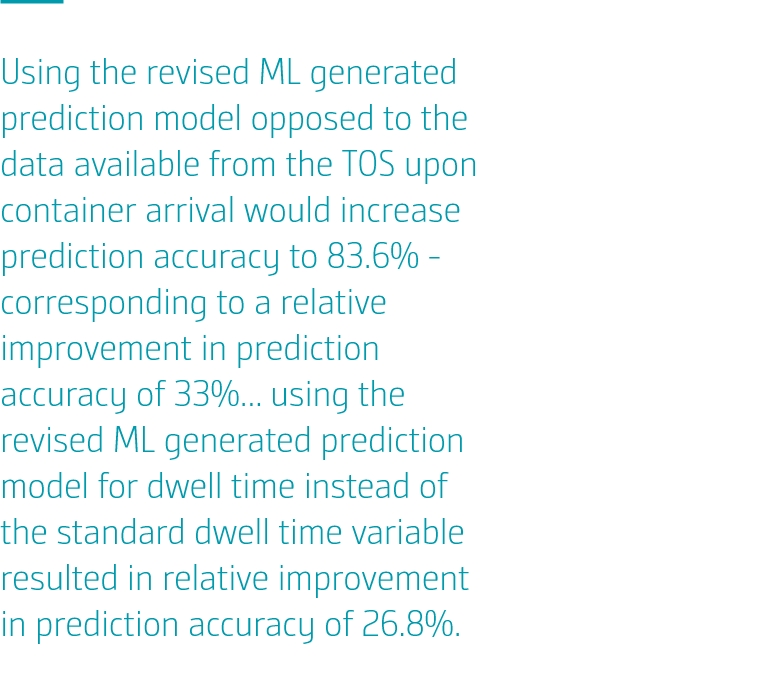
What are the risks to running a machine learning project?
The largest risk to any machine learning project is having a lack of understanding in how the algorithm generates the results it has come to – this is often referred to as the “black box” problem. This risk can be mitigated through careful project design and by using a proven algorithm such as those INFORM has experience implementing in the port and terminal industry.
The second risk you need to mitigate is having a lack of domain knowledge within your machine learning team. Be sure to include people who can interpret the results: this generally means a domain expert who is a data scientist (can interpret the results and translate), your ops team, your IT team, and management.
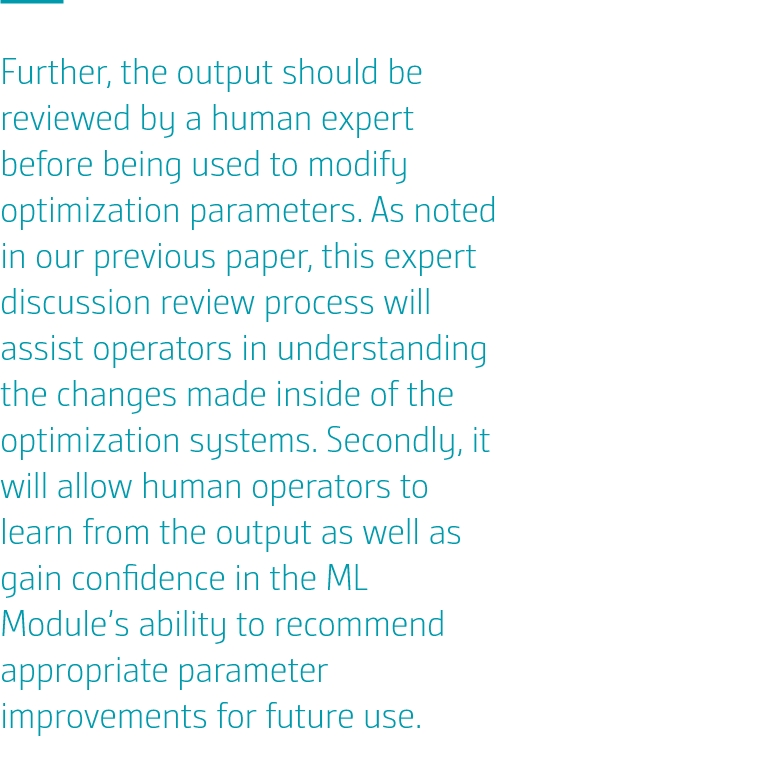
Finally, at INFORM we’ve taken the clear position that the results of our Machine Learning add-on module do not get feed directly into operation systems, but instead get sent to humans to review, understand, and verify the findings before they are implemented in a live operational system – from our perspective, this is the final failsafe to the two risks address above.
Is there an overarching body that could help regulate data standards? How do we move forward on standardization?
The short answer is probably. Richard Morton and Nico De Cauwer wrote a very compelling technical paper in March where they discussed the current state of standards and the various organizations that play a role therein.
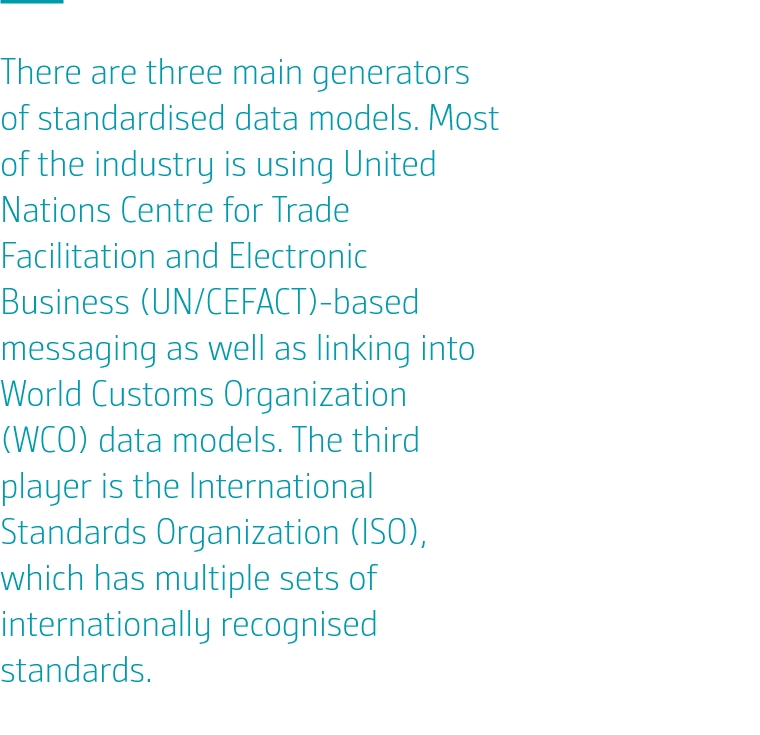
The paper discusses several interesting points, including the drawbacks to proprietary standards (to lock customers in) and the concept of “Harmonization” which the authors argue is actually the bigger need right now (over standards).
Alternatively, more specific to our industry is the Terminal Industry Committee (TIC 4.0) initiative which aims, “to promote, define and adopt standards.”
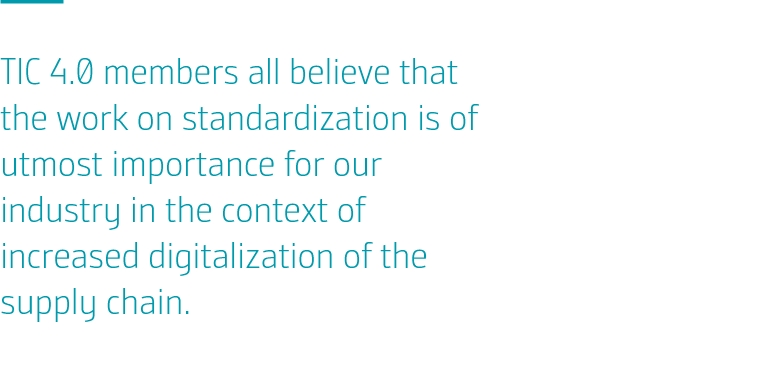
Who is best placed to implement a data management strategy and subsequently a machine learning strategy?
Understanding the buzzwords is an important start to answer this question. “Big Data” emerged in the mid-2000’s and few would argue the counter point that it now underpins most of today’s business practices. A few years ago we moved on to “artificial intelligence” (AI) and more specifically, “machine learning” (ML). In the context of AI and ML, one could argue that Big Data is the single most significant enabler of the advancements we’ve seen over the past decade. If we take that point, then access to data is fundamental and as was discussed during the PTI by most panelists, data access in the port and terminal industry is lack-luster at best.
As an industry we’re on the verge of really understanding that AI and ML are here to stay. That means that the buzzword will shift - “data management” is the new kid on the block. There are a broad range of “experts” out there who can help any organization implement a data management strategy. The important thing to remember is to find one that has some domain expertise so you’re all talking from the same page.
INFORM offers a obligation free consultation with a Senior Consultant to help terminals get the full picture of data management, what is involved, and where they are at on the journey to a strong data management strategy so they have a clear picture of how to proceed.
Is it possible to implement machine learning using existing data, and more specifically with regards to predictive maintenance, without adding extra sensors to equipment?
The short answer is yes. While all AI initiatives, machine learning included, rely heavily on big data, and lots of it, our early assessments into predictive maintenance utilizing existing data have shown promising results. That said, in general, more data is almost always better for machine learning and data from dedicated sensors will almost definitely decrease the Mean Average Error (MAE) of the algorithm, ultimately improving the accuracy of predictions.
How do you overcome the challenge when TOS vendors do not open their software to AI/Optimization solution vendors?
First, a quick business 101 lesson – the major TOS vendors currently do not have an incentive to make it easy to share data, quite the opposite actually (it prohibits and blocks competitors from offering competing products and services within the market).
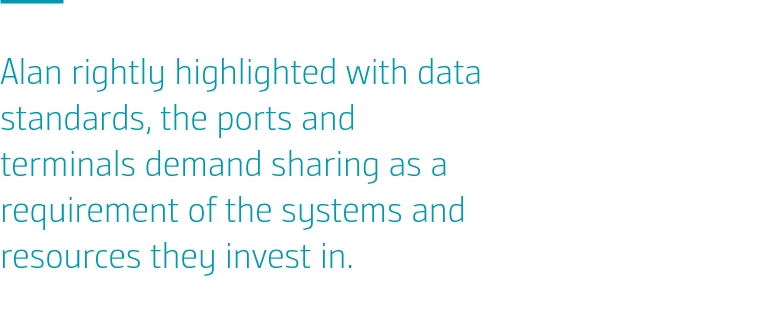
That said, there is an alternative whereby ports and terminals could invest in third-party software which operate solely as a database system to exchange data between various terminal stakeholders. In theory, we’ve seen Port Community Systems evolving over the past several years at the port level to facilitate this function with, generally speaking, good successes. It is time for terminals to investigate stronger data management practices which includes the enterprise IT systems that store, manage, and share that data.
How does machine learning initiatives engage with domain experts when validating findings?
As noted above, domain experts are fundamental in helping to design, validate, and ultimately implement the “Know-how” generated by a machine learning project. At INFORM we’ve taken the clear position that the results of our Machine Learning add-on module do not get feed directly into operation systems, but instead get sent to humans (domain experts) to review, understand, and verify the findings before they are implemented in a live operational system – from our perspective, this is the final failsafe to the two risks address above.
Our team of experienced machine learning experts are both experienced data scientists and domain experts in the ports and terminal world leveraging our 25 years of industry experience to understand and guide our customers to exceptional machine learning outcomes.
How usable are historical datasets that exist today – what data management strategies should be considered moving forward?
In our machine learning assessments and current implementations, we have and are leveraging existing, historical datasets to improve operational decision-making within terminal environments. In short, historical datasets have a significant value within them when leveraged correctly.
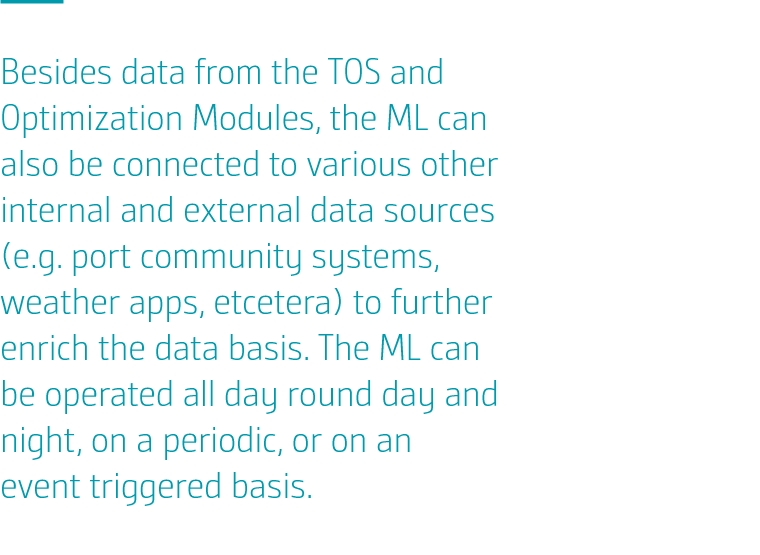
However, our experience has also shown us that getting historical data out of existing operational systems (such as your TOS) and bridging that data across silos is currently a significant challenge. A strong data management strategy will improve how data is stored and accessed for all operational and reporting systems across any terminal.
Will AI solutions only be developed under the control of TOS providers?
No. When you look at the terminal industry today and the emergence of AI and machine learning in the container terminal space, almost all of this innovative work is being conducted by none-TOS providers. Case in point, INFORM, named one of the 20 most promising AI companies in 2018, has offered AI and OR algorithmic software as an add-on to TOS platforms for 25 years.
Should the TOS be the center of the data management model?
No. a TOS is an operational system designed to assist you with running your terminal. It is not a database system (yes it has a database), it is not an information broker, and not a messaging bus. In the world of enterprise IT, these are specific things with specific purposes. There are a range of systems on the market today, that can assist with data management.
What are the platforms for Operations Research?
INFORM’s add-on optimization modules can be added to all industry leading TOS platforms. As an add-on, solution, our AI and Operations Research (OR) based software modules enable our customers to render a wide range of operational outcomes more efficient driving value in otherwise on-tapped areas of operation.
If you missed the AI and Resiliency webinar you can view it "on-demand" via Port Technology's webinar portal. It's free to access.
About our Expert

Matthew Wittemeier
Matthew Wittemeier was Director of Strategy for INFORM ANZ and previously served as Director of Marketing and Strategy for INFORM’s Terminal & Distribution Center Logistics Division. During his time at INFORM, he was a thought-provoking contributor to numerous industry publications and conferences. He is also co-author of the award-winning 2038: A Smart Port Story, which explores the future of technology and the social challenges it may bring.


